Fashion Crush: Miko Underwood
All Images: Oak & Acorn
There is much more to denim than cowboys and sandblasting. We meet Miko Underwood, the Founder of Oak & Acorn Only For The Rebelles, the only sustainable denim brand in Harlem, NY.
“Been thinking about what it means to be an American. What does it mean to me as a Black Indigenous American? I’ve recognised the more that I investigate, validate and authenticate the past contributions of my Ancestors the more empowered as an American I feel.” The words of Miko Underwood, taken from her brand Oak & Acorn’s Instagram account. To know where you are going, you have to first know when you have been. As a designer, Miko is only too aware of where she, and her ancestors have been. While Miko has been a successful fashion designer for years, it’s through her current brand, that she has found her voice. Oak & Acorn is the first sustainable denim based brand based out of Harlem, New York, and is the product of years of research and reflection.
Gaining Perspective
“I’ve always been a designer but didn’t recognise it until later in life. My Dad saw it in me, he got me a Vogue subscription at 9,” Miko told me via a Zoom call. Before she realised her calling, Miko began studying pre med at university. “Science speaks to a lot of creatives. Designers are problem solvers. I didn’t initially see it as a career option though.” But eventually her creative side shone through and she went on to head up several well known brands, including Baby Phat. Her strength, she explains, was always denim. However she could never make the pieces fit. “I wanted to do something that felt authentic and so I decided to take a break. I couldn’t find an answer to what I was doing.” It was during this break that Miko began to participate in her sister’s work to get justice for their Father.
At this point Miko’s father, a consistent and supportive influence in her life, had been incarcerated in the US federal prison system for 25 years. (UPDATE: see bottom of page for news on William Underwood’s case). At the time of writing, he will have served 35 years of a life sentence, never to be paroled or allowed to appeal his case. His incarceration has of course had a lasting effect on Miko and her family. Miko’s sister, Ebony, decided to start a national Not for Profit organisation (the first of it’s kind) in the US called We Got Us Now. The organisation supports children of incarcerated parents, of which there are 10 million. It was only when she took a step back from designing and began supporting her sister’s work with We Got Us Now that Miko decided to follow her heart, and her father’s advice, and launch a denim brand. “I felt like denim was the secret affair I was having the whole time. Throughout my career I have always made myself aware of the innovation and the alternative fabric in the denim space. I love hemp and the possibilities in the denim space.” So Oak & Acorn was born.
Hidden Commodities of Slavery
However it was a more complicated matter than just starting a fashion brand. Miko wanted to fully understand and appreciate the fabric she was working with in order to really reflect it’s problematic and culturally significant role in fashion and Black American Culture. “Through my journey of researching hemp, I discovered that the first jeans were made of hemp and so was the first american flag,” she explained. This revelation made her dig further, until she discovered indigo, the hidden commodity of the slave trade. Although commonly credited to origins in India, indigo was prevalent in Africa and taken to the Americas on slave ships. Enslaved people understood how to grow the plant, and how to use it. However if you google the origins of indigo, the results are unsurprisingly white washed. As she explains in an article she penned for the CFDA earlier this year, “the American fashion community was born from the inception of indigo slave plantations in America. Indigo was the hidden commodity of the slave trade before cotton. The first indigo dyed hemp clothing was the uniform of the enslaved, called “Negro cloth,” and deemed unfit for anyone to wear but the enslaved Black Indigenous American and enslaved African people.”
These statements may come as a surprise to those of us who understood the origins of denim to lie with Levi Strauss, Cowboys and later on, James Dean. The history of cotton in the US is no secret, but the use of indigo dyed hemp as the clothes of enslaved people isn’t well known. “I am a denim historian because I found a small treasure and needed to find more. How are we not talking about this?” So together with Oak & Acorn, Miko started The Denim Collective, to educate us about the true origins of denim. “Most people have not been exposed to this. How does denim appear in American culture? Its a global commodity and we see now that it’s connected to modern slavery.” She started simply with the Rebelle Coverall, now a classic within her seasonless, genderless collections. 20% of the profits from its sale goes to We Got Us Now.
An Education In Denim
As well as The Denim Collective, Miko educates and informs through her collections and the clothes themselves. Fashion is not only a statement of identity but it also tells stories of human and social injustice, of politics and societal upheaval. It’s not well known that the popular styles like that trucker jacket, denim workshirt and overalls originated on plantations in the Deep South. “They were crafted by the people out of necessity. They had to protect their legs from the cotton plants,” Miko explains.
Her Rebelle Coverall pays homage to the coveralls worn by enslaved people and later, those incarcerated in the US prison system. People like Miko’s father. A victim of mass incarceration thanks to over zealous laws which sought to disproportionately target the black community of America. The 13th Amendment of the USA describes the way through which slavery was ‘abolished’, “neither slavery nor involuntary servitude, except as a punishment for crime whereof the party shall have been duly convicted, shall exist within the United States, or any place subject to their jurisdiction.” The amendment is, simply put, a legal loophole through which the Government can incarcerate black people easily and continue to profit from cheap prison labour in the way they did through slavery. Through her research, and her lived experience Miko explains how she “joined the dots. Prison uniforms were blue jeans and a denim shirt, as well as a coverall. It was important for me to tell the story of denim in that way.”
Denim And Black American Culture
From the plantations to the civil rights movement, denim has appeared as a symbol of oppression, later used as a message of resilience. In support of their enslaved ancestors, in the 60’s members of the SNCC (Student Non Violent Coordinating Committee) civil rights group wore denim to rally’s calling for equal rights. Clothing that was once considered repressive and a symbol of an oppressive history were given new meaning in the light of movements like the SNCC and the Black Panthers. In Miko’s collections she references both the dungarees and coveralls worn by plantation workers and sharecroppers, as well as the styles later adopted by these movements. “I felt a cultural responsibility as an indigenous black woman to tell these stories.”
This year has been a pivotal one for Miko. Like many, her plans for both Oak and Acorn and The Denim Collective were slowed thanks to COVID. And also thanks to COVID, her family’s campaign to secure the release of their father has regained urgency. Prisoners are the most vulnerable group in America at risk of dying from COVID-19. However, 2020 also bought new recognition and work with the CFDA (Council of Fashion Designers of America) when she was included in the Bethann Hardison Designer Hub Grant. As an inherently racist system, fashion is sitting up and taking notice of hard working designers like Miko, who have an important message we all need to listen to. Miko agrees, “especially at this moment, the best way we can make change and give voice to the history of denim, is to be able to amplify it through fashion.”
Creating Sustainable Denim
However the importance of Miko’s work doesn’t end here. Hers is an important brand in the sustainability landscape right now. Not only that but Miko sees sustainability as an inescapable part of life. “I see sustainability as a holistic perspective. If I am being a sustainable steward, my mind, body and spirit are in alignment. I’m vegan. I take care of myself. I show up in my work by operating from a sense of purpose.” This diligence is displayed through her fabric choices. Recycled cotton, TENCEL ™, REFRIBRA ™, and deadstock denims all feature in the collections. Mostly the denim is left raw, devoid of the historically unsafe washes, sand blasting and bleaching techniques which used to be so prevalent in the industry. “It’s important to me that customers have a long lasting product. It’s important we make as little impact as possible.”
It’s not just the environmental perspective that Miko addresses. For both her supply chain and her customer, she feels a deep responsibility. “I want to uplift people through our work. The educational part is so important and I want to share information and make people feel activated.” Lets face it, we could all do with a little education, not only on the subject of environmentalism and racism but on the hidden systems that we continue to uphold because we are blind to the deep and painful history of our clothes. So the next time you look at a pair of Levi’s, remember that your jeans are just one piece of a larger puzzle.
Read The Vendeur Profile: Ebony Underwood
By Lucy Kebbell
UPDATE: We are pleased to share that William Underwood was granted compassionate release on 15th January 2021. Miko and her family are elated to have him home and justice restored. However the fight still goes on for other families of over incarcerated parents.
Did This Put A Smile On Your Face? Why Not Subscribe?
If you enjoyed this then theres plenty more on our email newsletters that you'll love. Whether you're a sustainable newbie or an eco conscious pro, our bi monthly emails will inspire you to live sustainably and ethically.

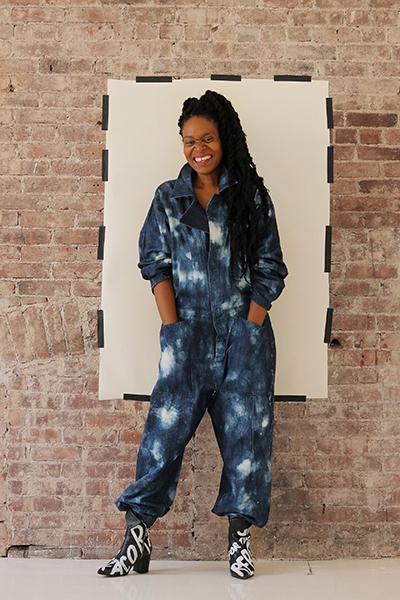
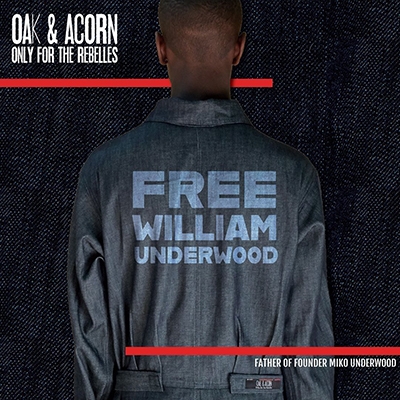
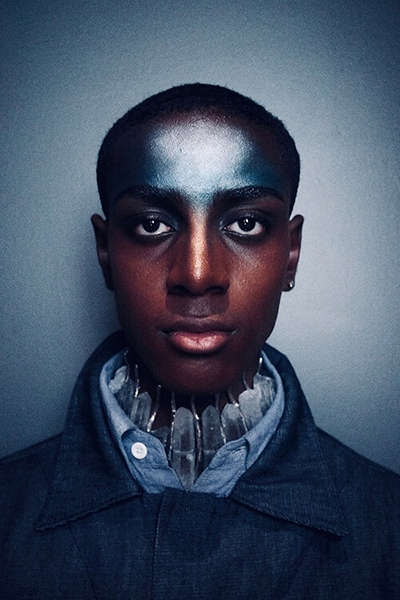
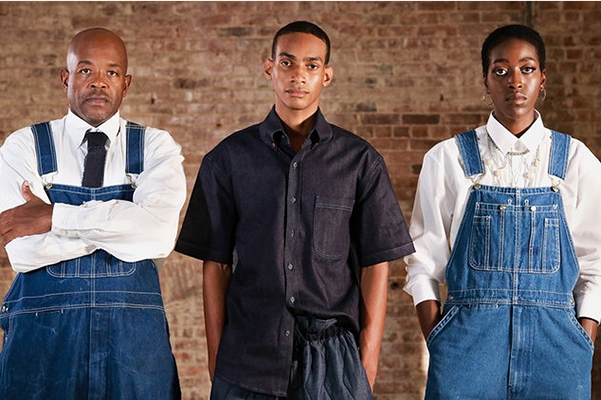
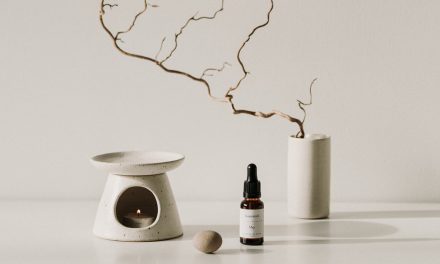
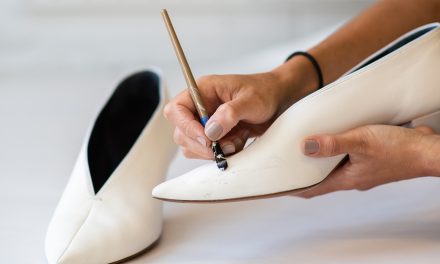
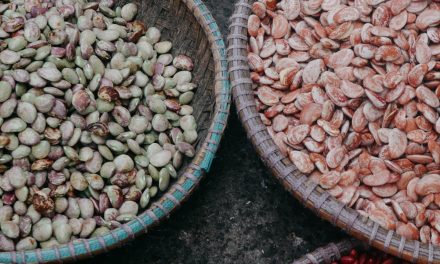
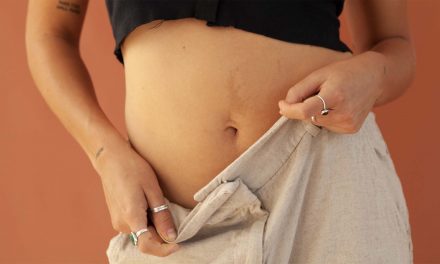
Trackbacks/Pingbacks